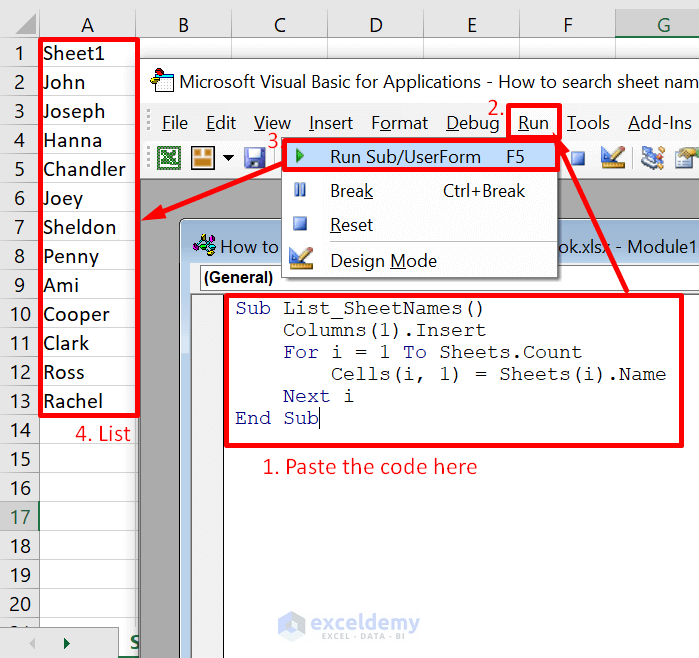Probate Paperwork Explained: What You Need to Know

Understanding probate paperwork is crucial for anyone dealing with the legal process following a loved one's passing. Probate involves proving the validity of a will, identifying and inventorying the deceased person’s property, having the property appraised, paying debts and taxes, and distributing the remaining property as per the will or, if there is no will, according to state law. Here's an in-depth look at what documents and processes you might encounter, why they are necessary, and how to handle them.
What is Probate?

Probate is the judicial procedure through which a deceased person's estate is properly distributed to heirs and designated beneficiaries and any debts are paid off. Here are the key documents you'll encounter:
- The Will: If there is a will, it must be submitted to the probate court.
- Death Certificate: Multiple copies will be needed.
- Application for Probate: To begin the probate process.
- List of Heirs and Beneficiaries: To notify interested parties.
- Notice to Creditors: Notifying creditors to file claims.
- Inventory of Assets: Listing all property and valuables.
- Appraisal: Professional assessment of asset values.
- Final Accounting: Final financial statements.
- Petition for Final Distribution: To distribute assets as directed by will or state law.
The Probate Process

The probate process can be complex and often involves several steps:
1. Filing the Petition for Probate

This is usually done by the executor named in the will or, if there is no will, a court-appointed administrator. You will need:
- Original will.
- Copies of the death certificate.
- A filing fee, which varies by state.
2. Notifying Interested Parties

Once the petition is filed, you must notify the heirs, beneficiaries, and creditors. This involves:
- Publishing a notice in a local newspaper.
- Sending personal notices to known creditors.
3. Inventory and Appraisal

The executor or administrator must create a complete inventory of the deceased’s property, which must be appraised to determine its value. This involves:
- Hiring a professional appraiser if necessary.
- Compiling all financial records.
4. Managing and Settling Estate Affairs

During this period, you'll need to:
- Open an estate bank account.
- Settle any debts, taxes, and administrative fees.
- Possibly sell assets to pay off debts.
5. Petition for Final Distribution

Once all debts are settled, you submit a petition for final distribution:
- Detailed accounts of all transactions are required.
- The court approves the distribution of assets.
Important Documents and Their Purposes

The Will

The last will and testament dictates how the deceased wanted their property to be distributed. Without it, the estate is distributed according to state intestacy laws.
Death Certificate

This document verifies the person’s death and is crucial for legal proceedings, financial institutions, and insurance companies.
Notice to Creditors

This notice gives creditors a deadline to make claims against the estate. It is crucial for determining which claims are valid and ensuring all debts are addressed before distribution.
Inventory of Assets

This document lists every asset the deceased owned, which helps in appraising the estate’s value for tax purposes and distribution.
Final Accounting

This provides an overview of all estate transactions, from income received to expenditures made, ensuring transparency and accountability.
Petition for Final Distribution
This is the last formal request to the court to approve the distribution of remaining assets according to the will or intestacy laws.
⚠️ Note: Ensure that all paperwork is filed correctly and within the deadlines set by your state to avoid delays or legal issues.
To manage the probate process effectively, understanding each document's purpose and how they interconnect can greatly streamline the process:
- Accuracy: All documents must be accurate to avoid disputes or legal challenges.
- Timeliness: Missing deadlines can lead to penalties or the need to restart the process.
- Communication: Keeping all parties informed minimizes misunderstandings and potential conflicts.
- Professional Help: Considering hiring an attorney or estate administrator can ease the process.
After navigating through probate paperwork, organizing and preserving records becomes essential. Keeping meticulous records helps ensure that all parties, including heirs, beneficiaries, and creditors, are satisfied with the distribution. It also protects the executor or administrator from future legal challenges by providing a clear trail of all actions taken.
What happens if a will cannot be found?
+If no will is found, the estate goes through intestacy laws, where the state dictates how assets are distributed to heirs.
How long does probate take?
+The duration of probate varies widely by state and the complexity of the estate, typically ranging from several months to over a year.
Can probate be avoided?
+Yes, through estate planning tools like trusts, joint ownership, and beneficiary designations, probate can often be avoided or minimized.
By understanding and managing probate paperwork effectively, you can ensure that the deceased’s wishes are honored, legal requirements are met, and the process is as smooth as possible for all involved. The effort in handling these documents with care can also alleviate much of the stress associated with grieving, allowing for a focus on remembrance and healing.



